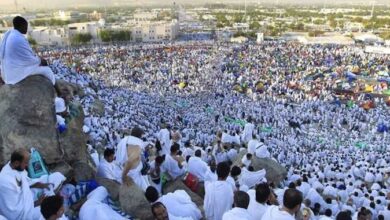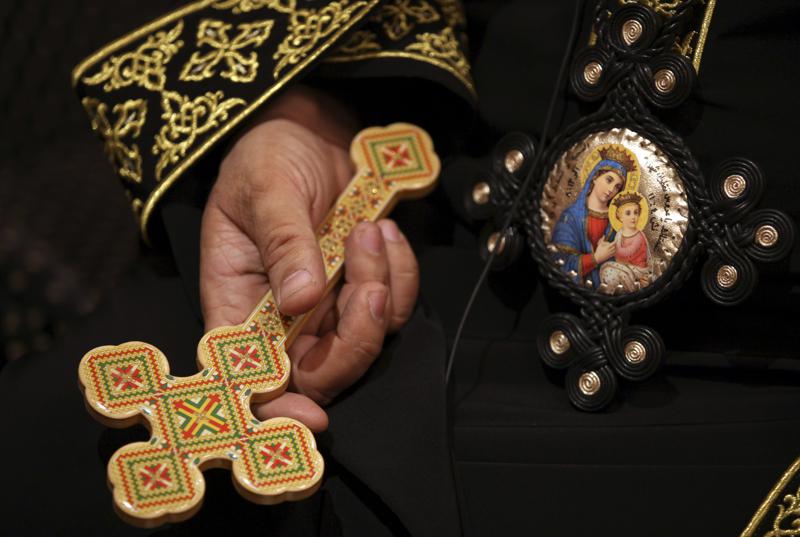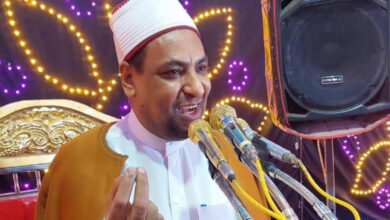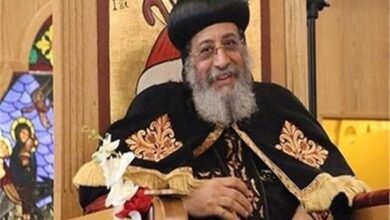“My heart can take on any form: a meadow for gazelles, a cloister for monks, a house for idols, Ka'ba for pilgrims, tablets of the Torah, scrolls of the Quran. My creed is love; wherever its caravan turns along the way. That is my belief, my faith.” — Ibn Arabi
Under this slogan, 23 cultural institutions from Cairo, Alexandria and Fayoum organized a gathering entitled “We are all Egyptians” on Thursday evening–Coptic Christmas Eve–at Zamalek’s Sawi Culture Wheel. Like Friday’s events at Darb 1718, it was a show of solidarity with the victims of the bombing at the Church of St. Mark and St. Peter in Alexandria on New Year’s Eve. A vast array of writers, artists, actors and musicians, including Ameen Haddad, Hazem Ameen, Saleeb Fawzy and Bassem Wadee, gathered at the art space.
Basma el-Husseiny, managing director of the Culture Resource that spearheaded the event, attributed rising religious intolerance to increased censorship and restrictions placed on intellectuals and creative workers in Egypt over the past 40 years. Writer Sahar al-Mougy reiterated that: “No progress can be attained without freedom; freedom to create and to express oneself.” The current educational system further subverts tolerance and the existence of a multiplicity of opinions, added al-Mougy.
Several speakers, including Egyptian actor Khaled Abu al-Naga, highlighted the role of Muslim and Christian preachers in fueling sectarianism amongst Egyptians. People have come to view their religion as their identity, alienating others, explained Egyptian film producer Mohammed al-Adl. “The simplest example is drivers hanging Islamic verses or a cross in their cars. This is a recent phenomenon that emphasizes religion rather than their citizenship,” added al-Adl.
Acclaimed author Bahaa Taher read a passage from his famous novel “Khalti Safeyya wal Deir” (Aunt Safeya and the Monastery), that highlights the sense of community among Muslims and Copts in an Upper Egyptian village. Samia Jaheen, daughter of the late poet and lyricist Salah Jahin, read her father’s poem “The Dead” in addition to a poem by her brother, Bahaa Jahin. “At times of crisis, it’s important to go back to those who have been our role models, to borrow strength to understand what’s happening and face it,” she said.
Perhaps the most poignant speech was given by writer Khaled al-Khamissy, who read a list of occurrences of persecution and social injustice against the Copts throughout Egypt’s history. “We must acknowledge that there’s a real problem. Intolerance is only rising,” stated al-Khamissy, citing comments written on blogs and online forums encouraging Muslims not to mourn the death of the Copts.
Although al-Khamissy’s forceful words were met with some concern–“He is fueling hostility among Egyptians,” said one audience member to Al-Masry Al-Youm–the incidents he cited are historical facts and must be acknowledged, not ignored. Participants at the Culture Wheel called for a unified place of worship.




